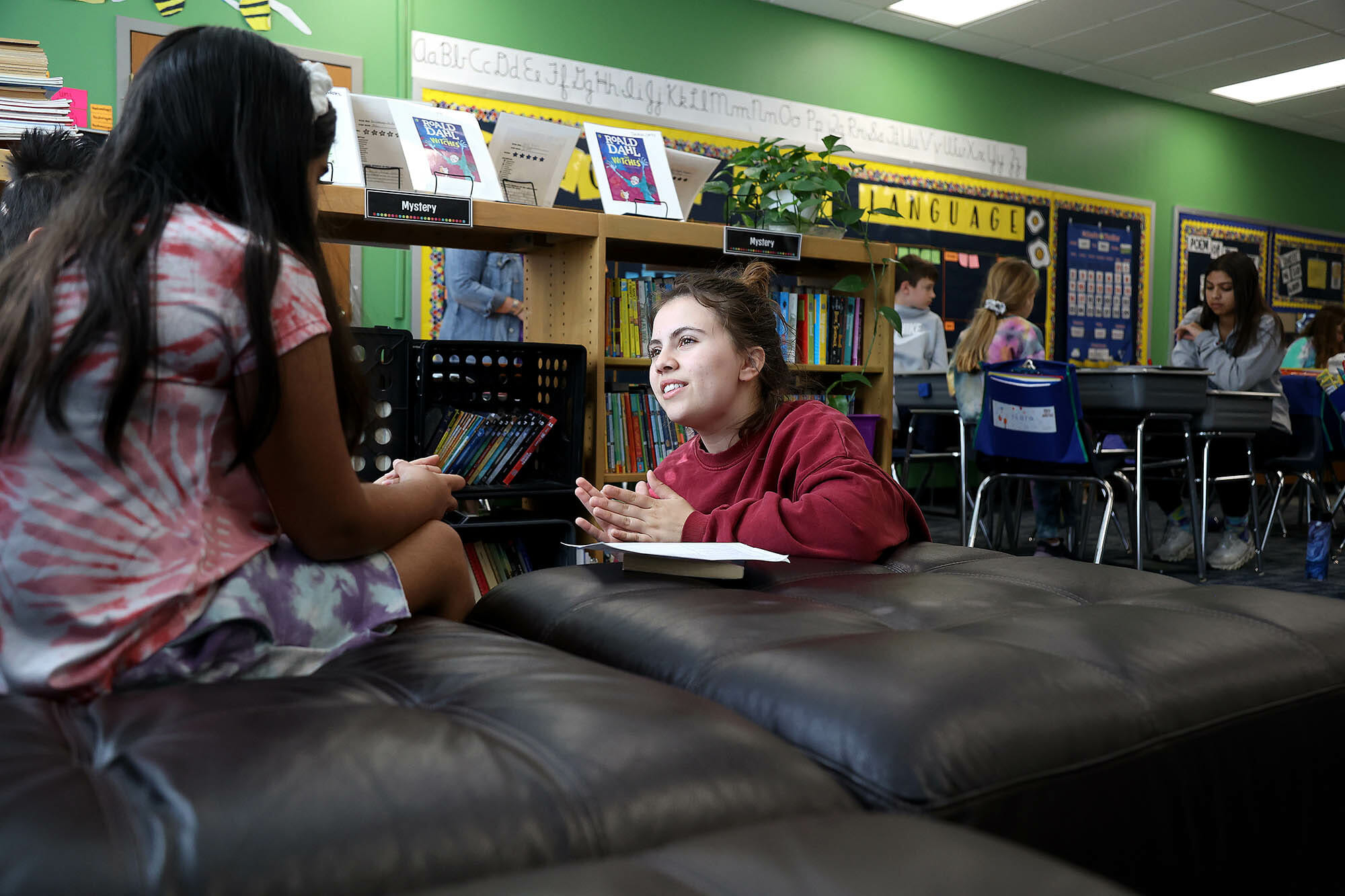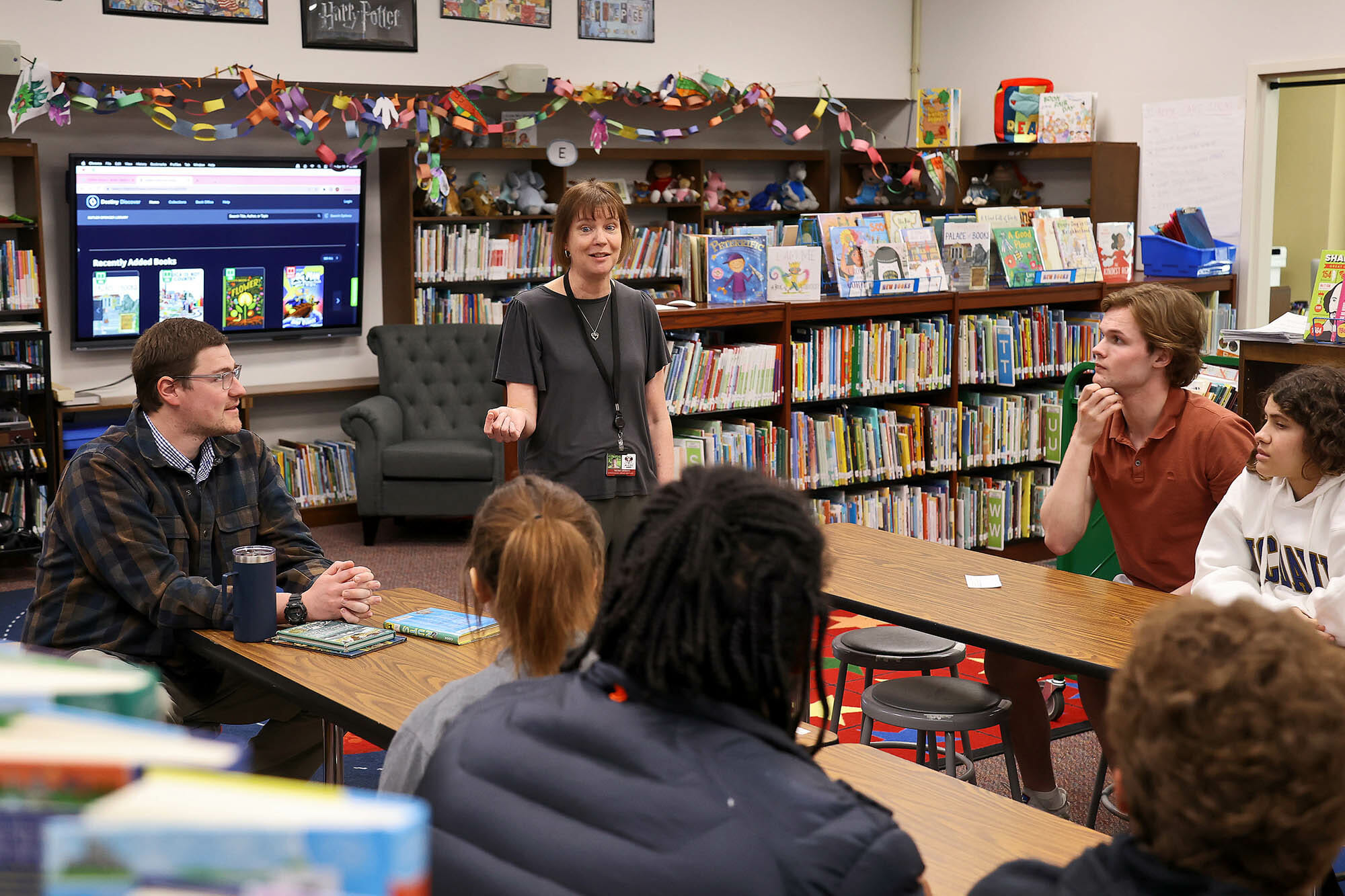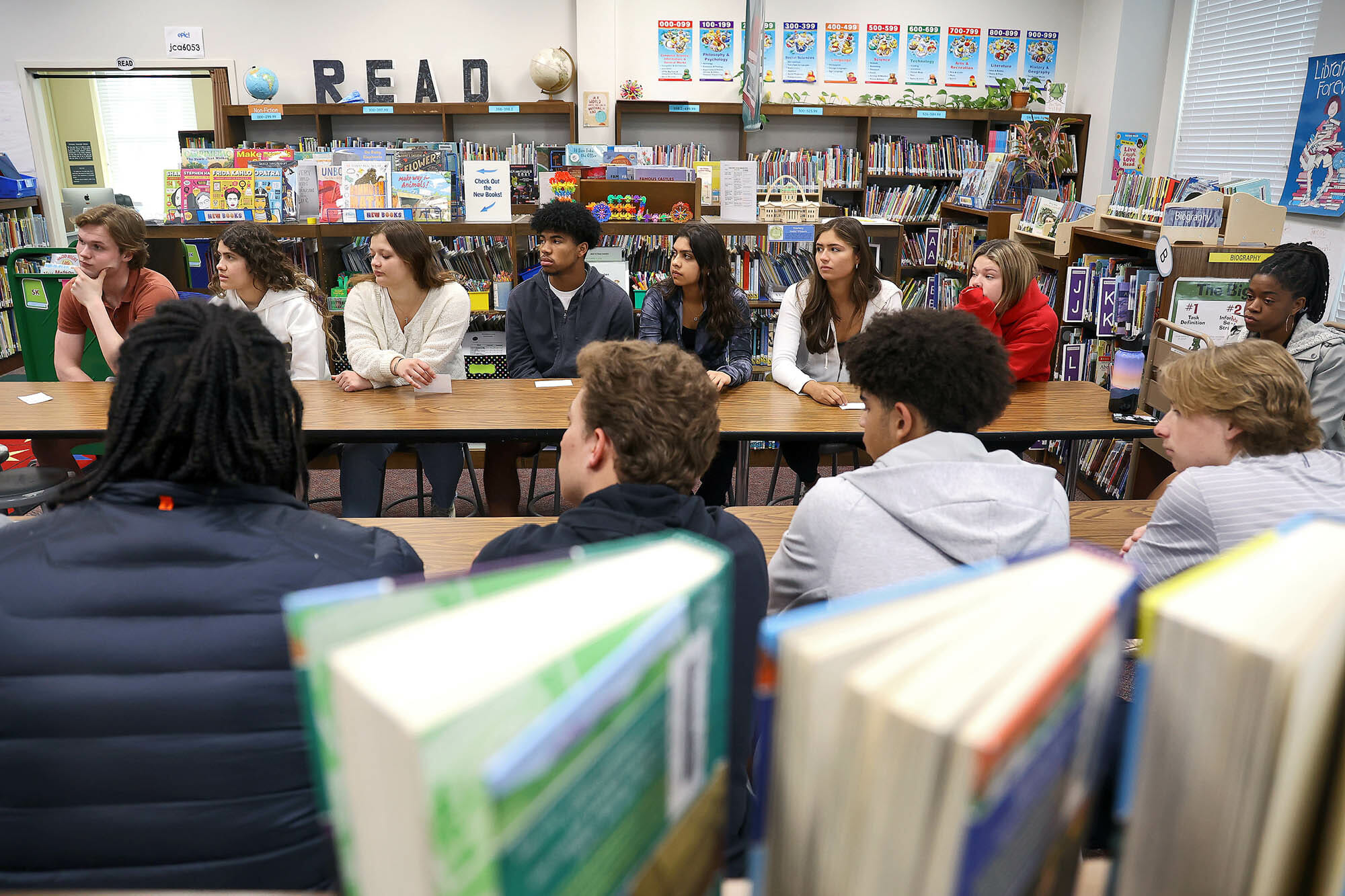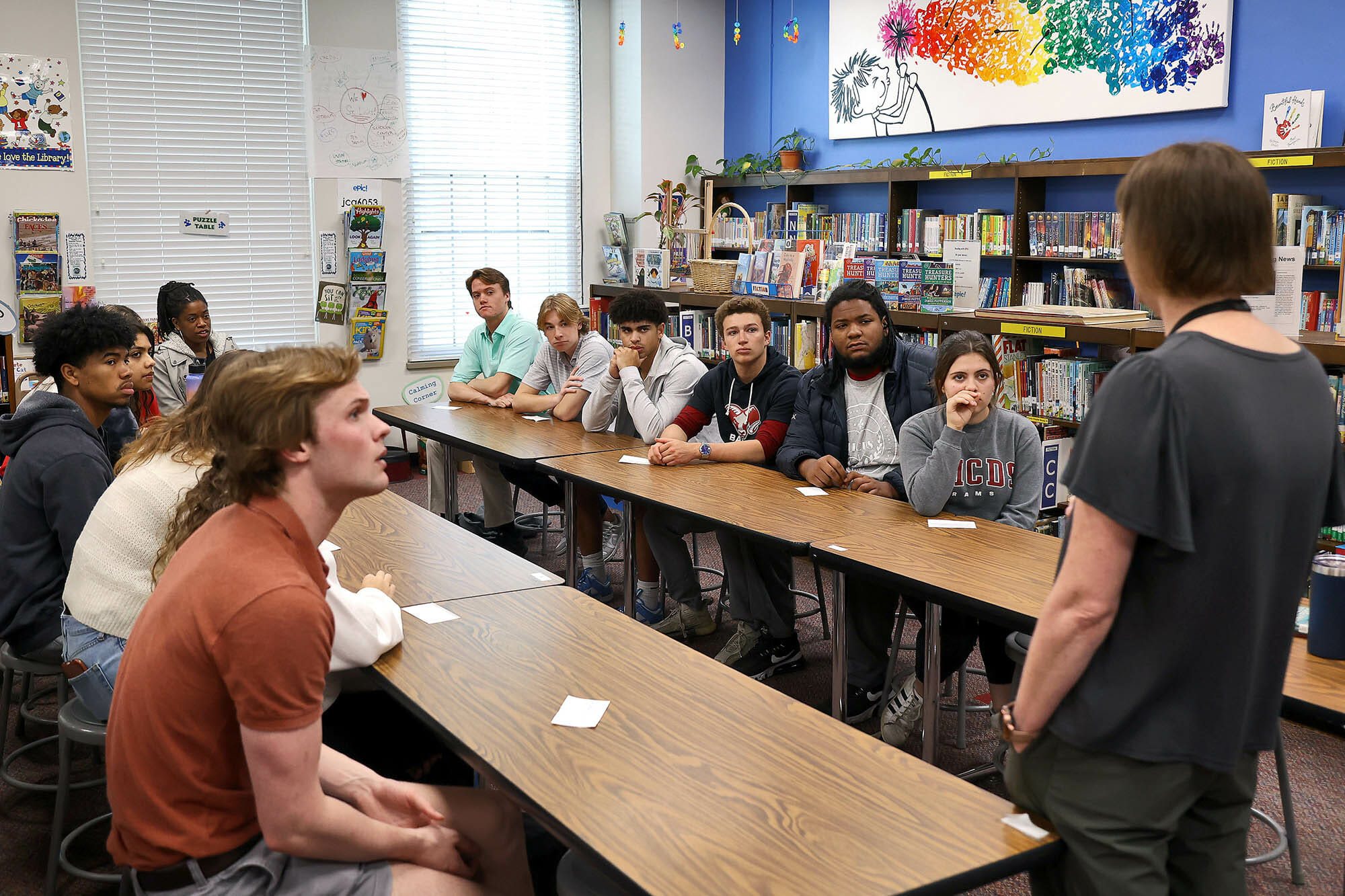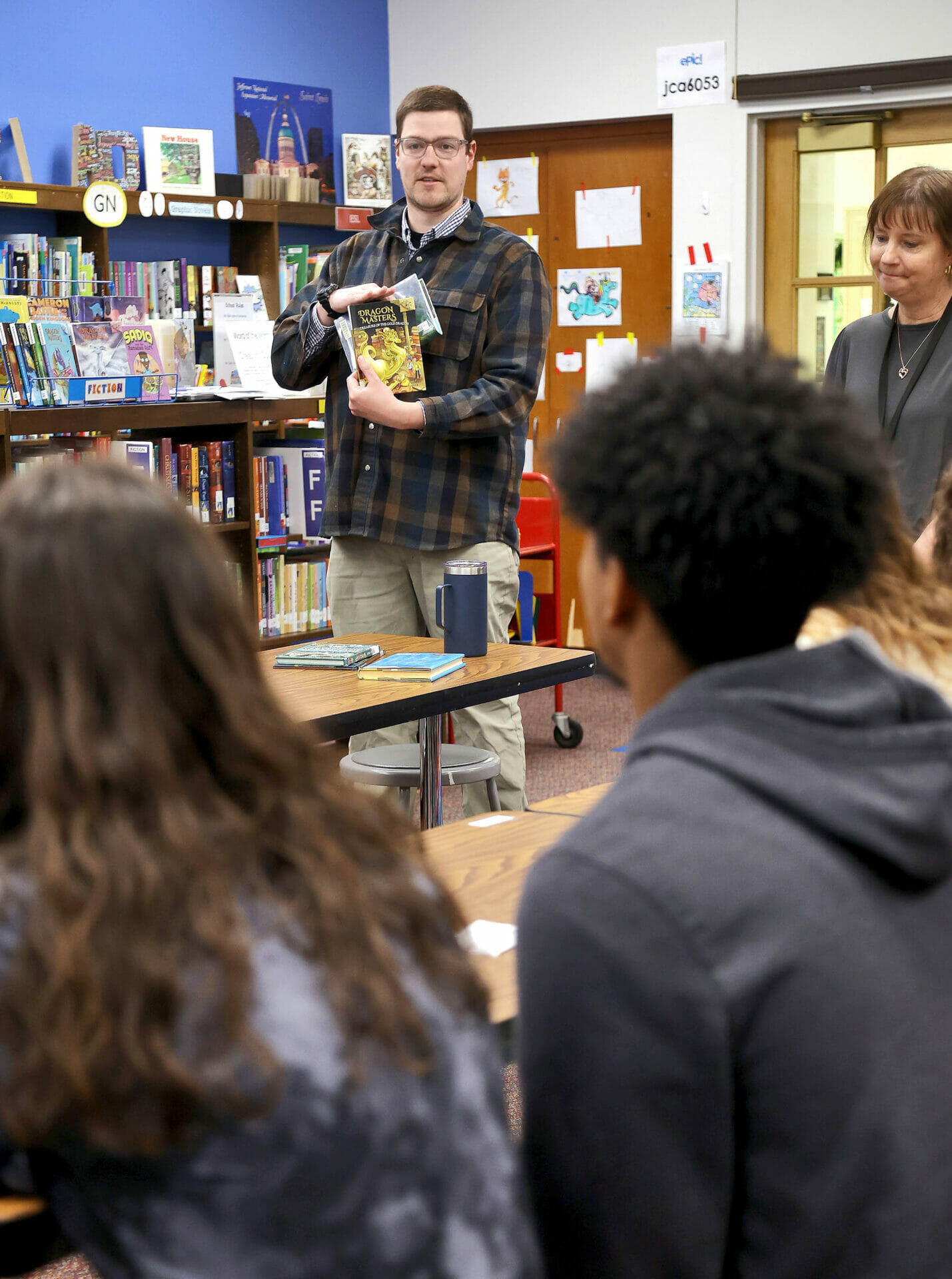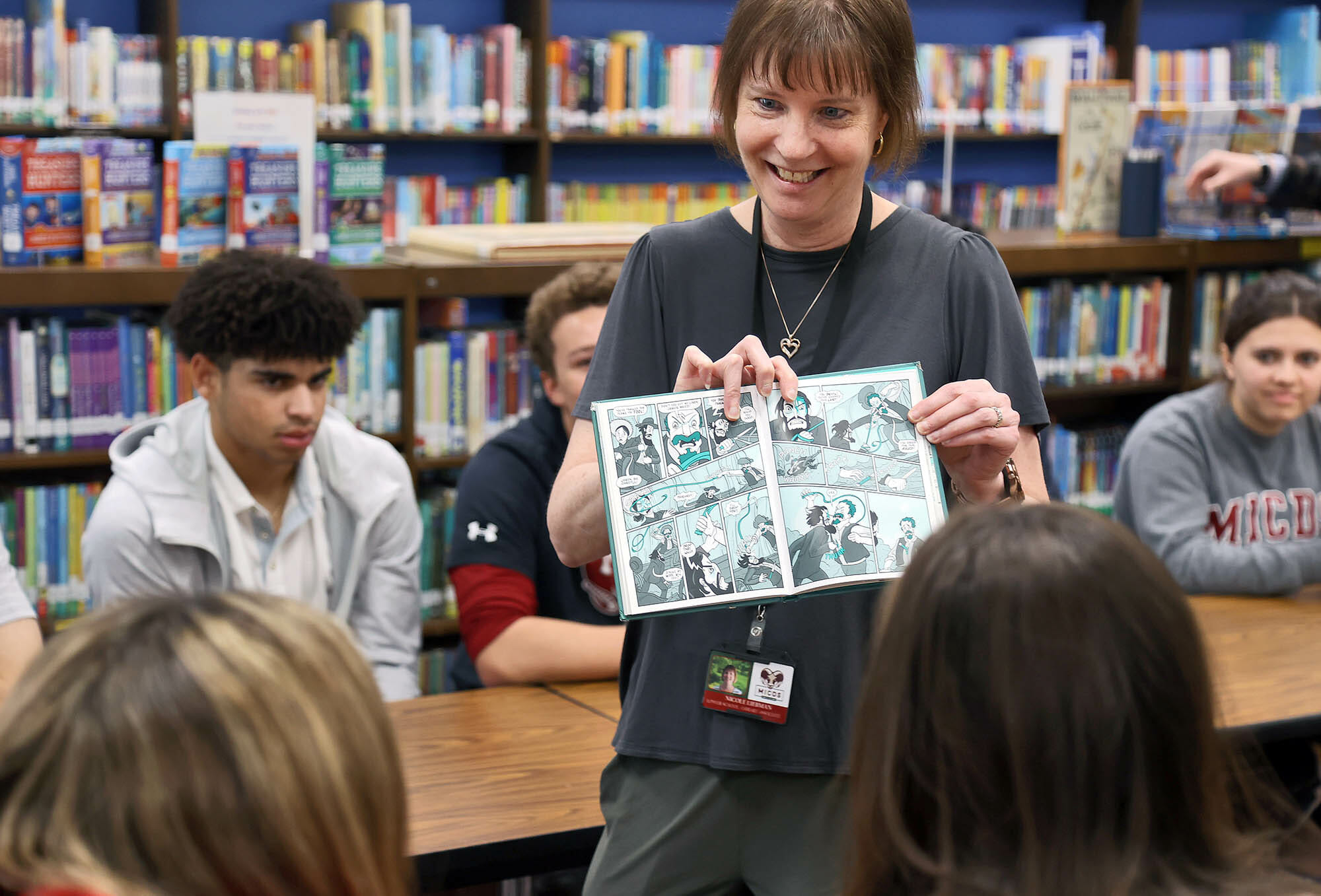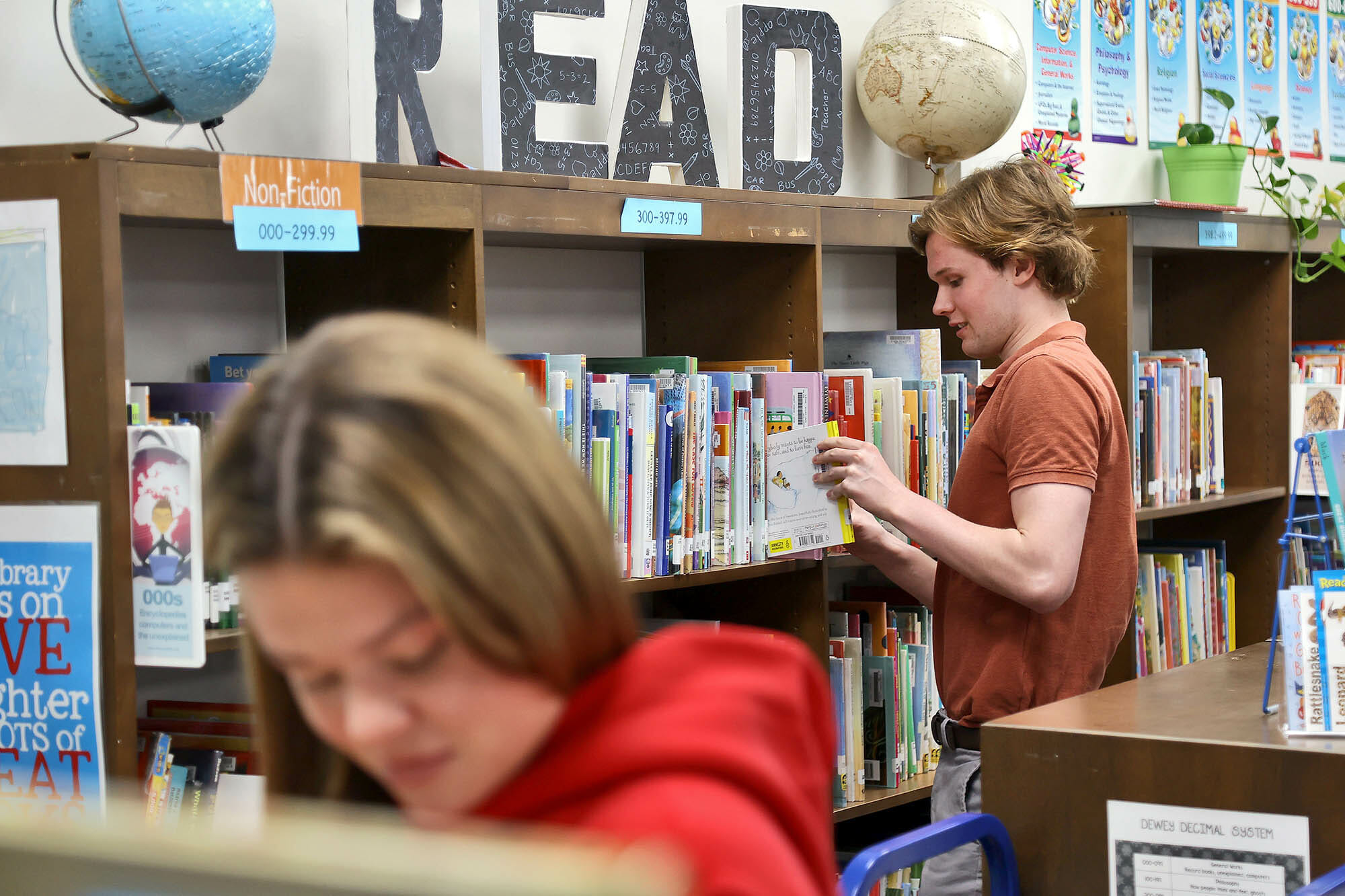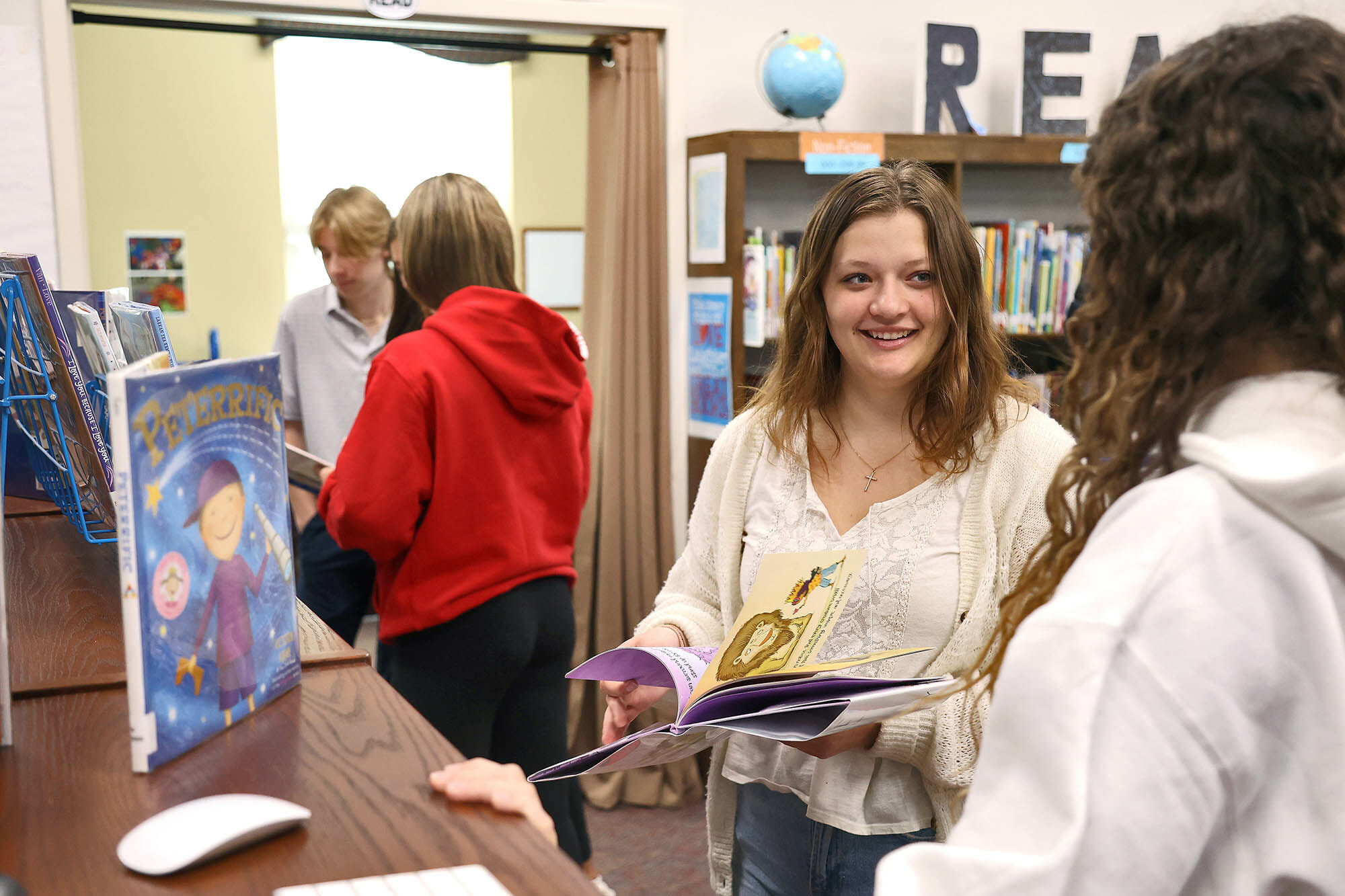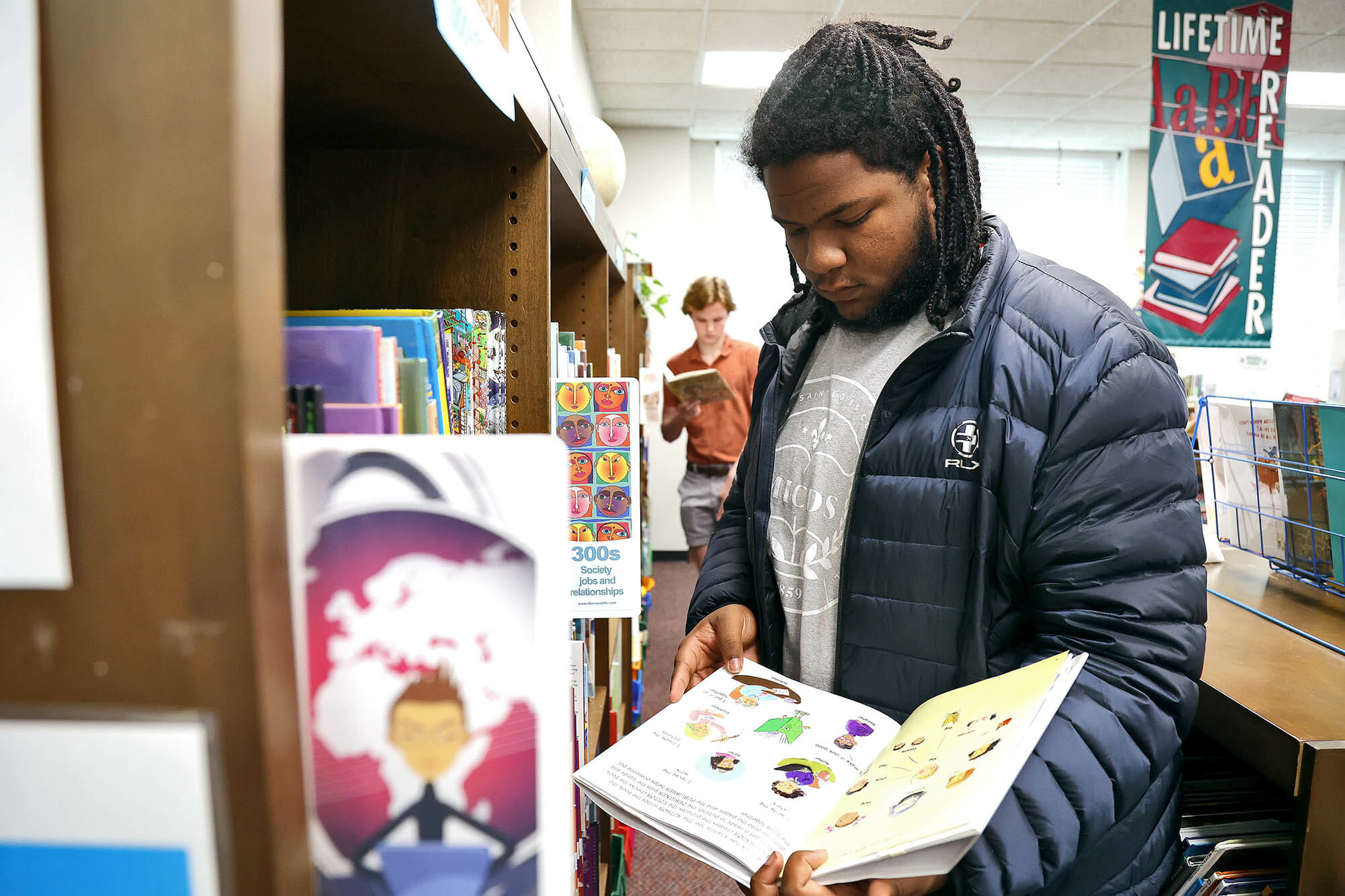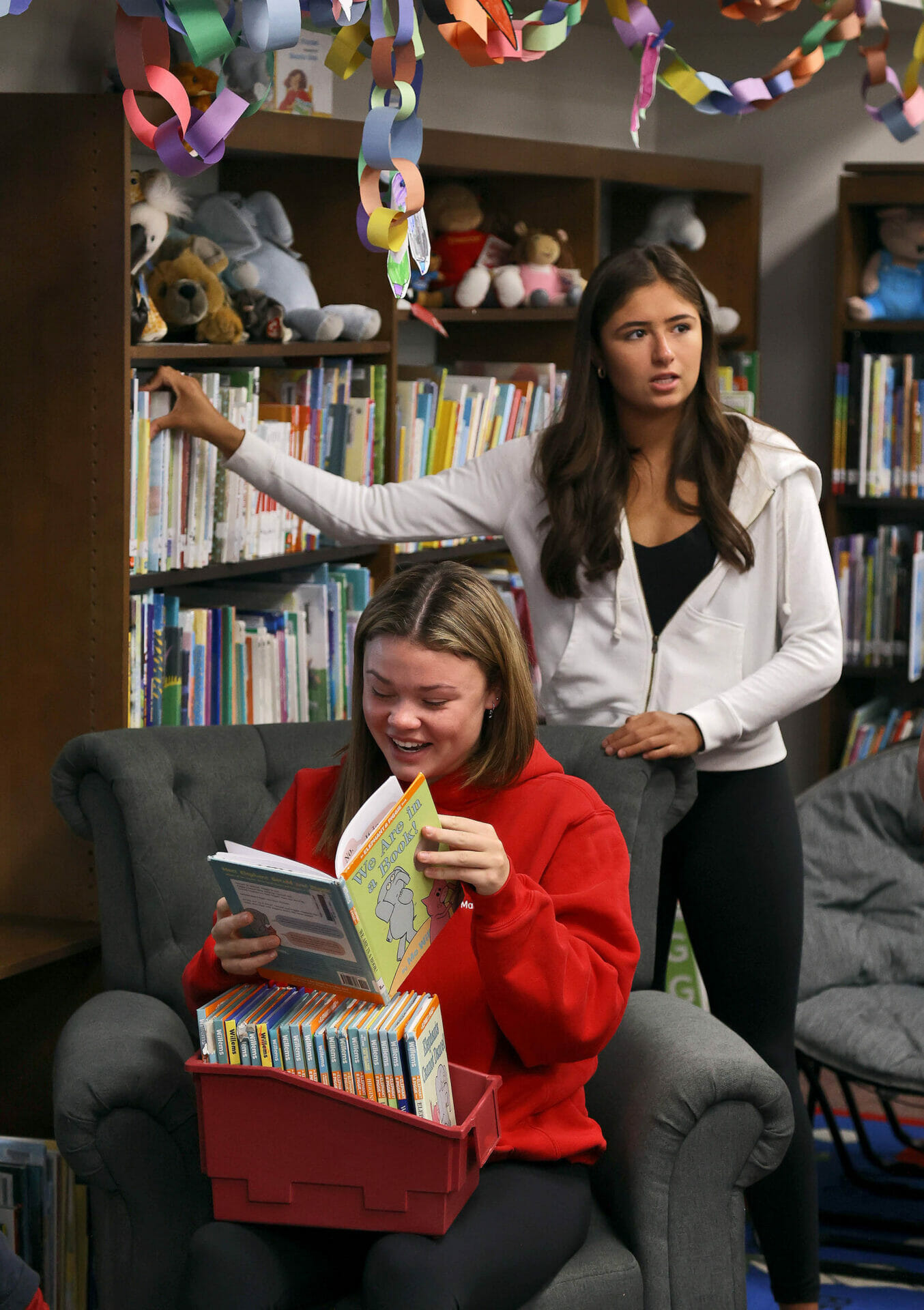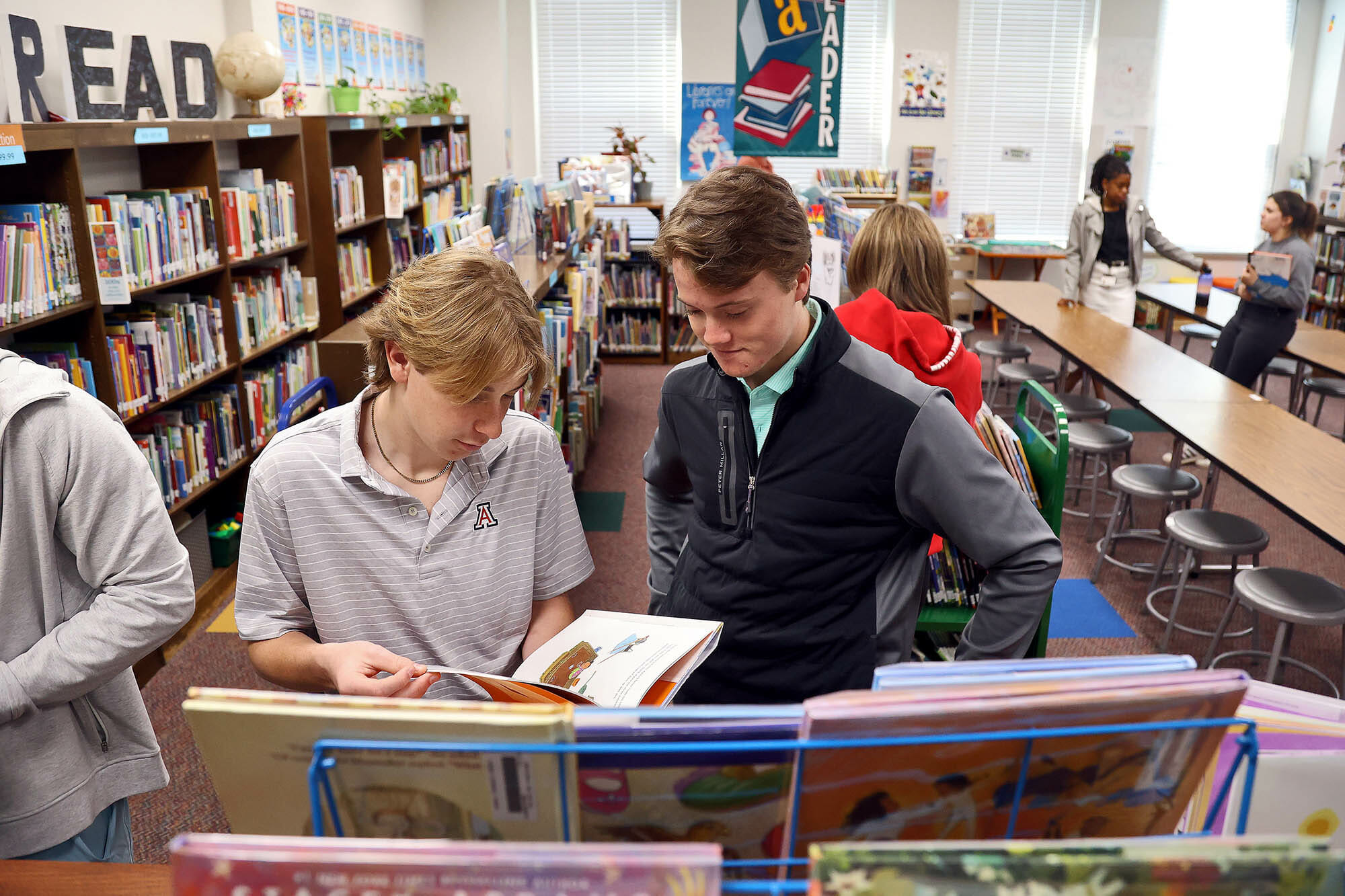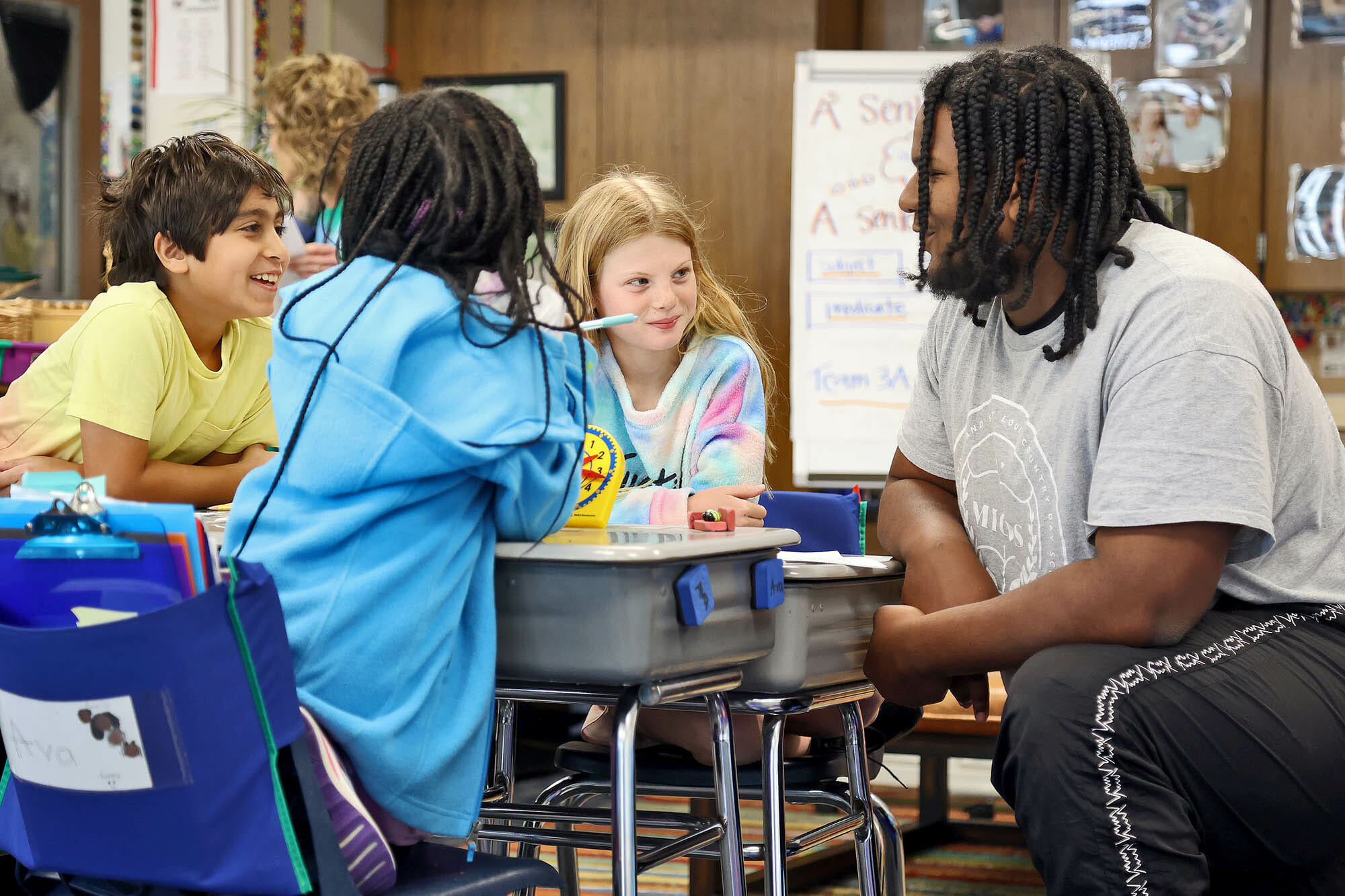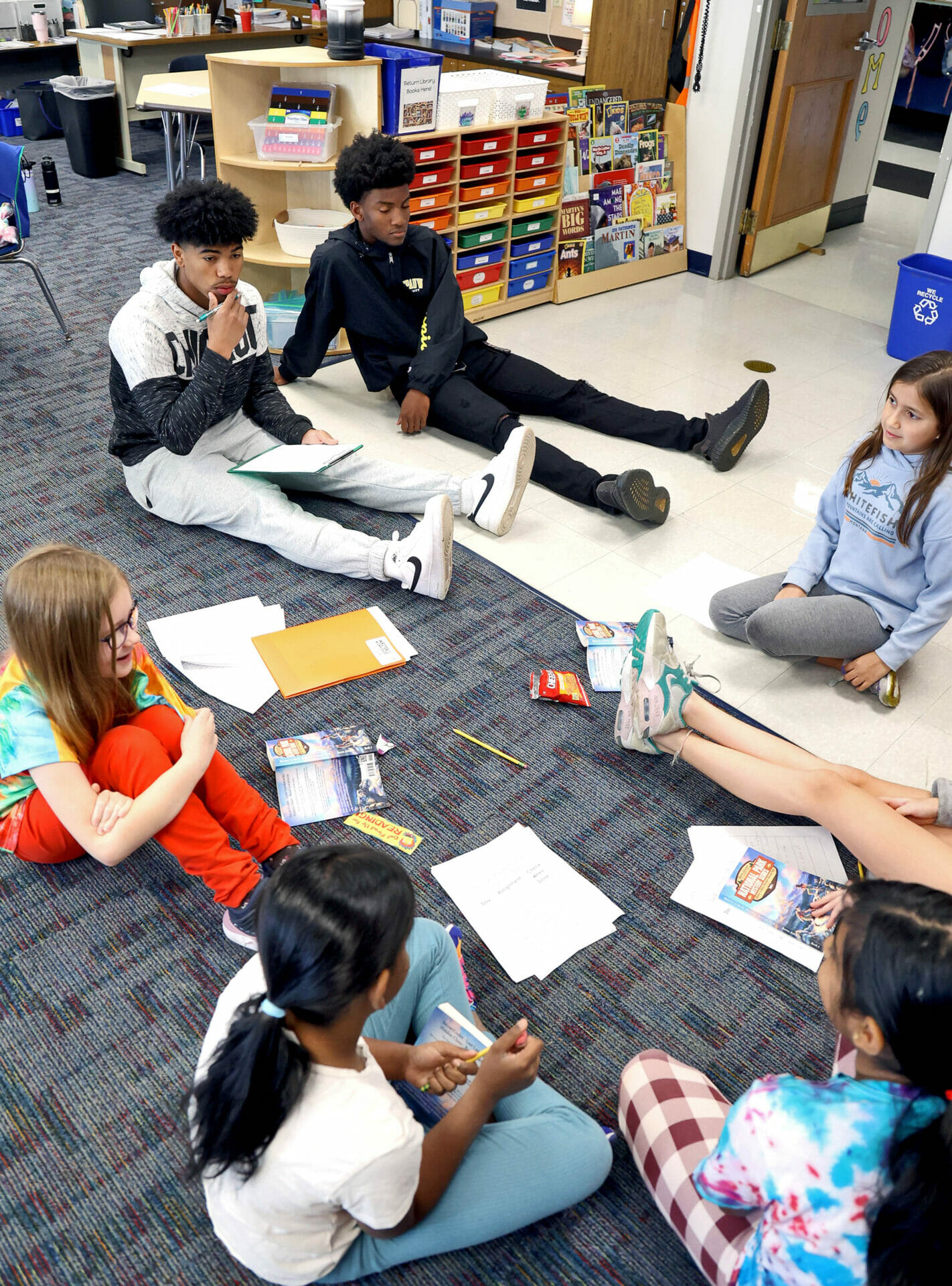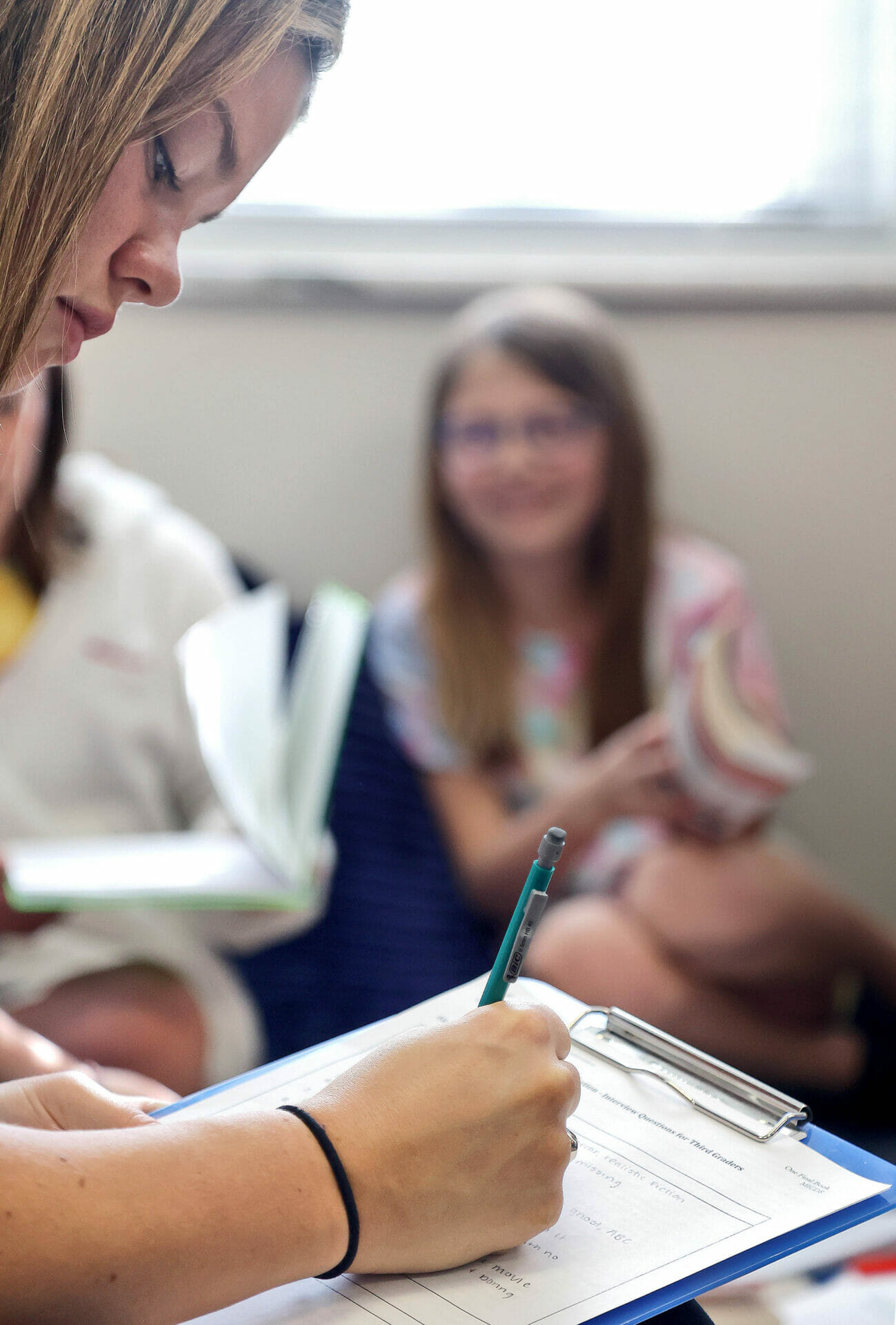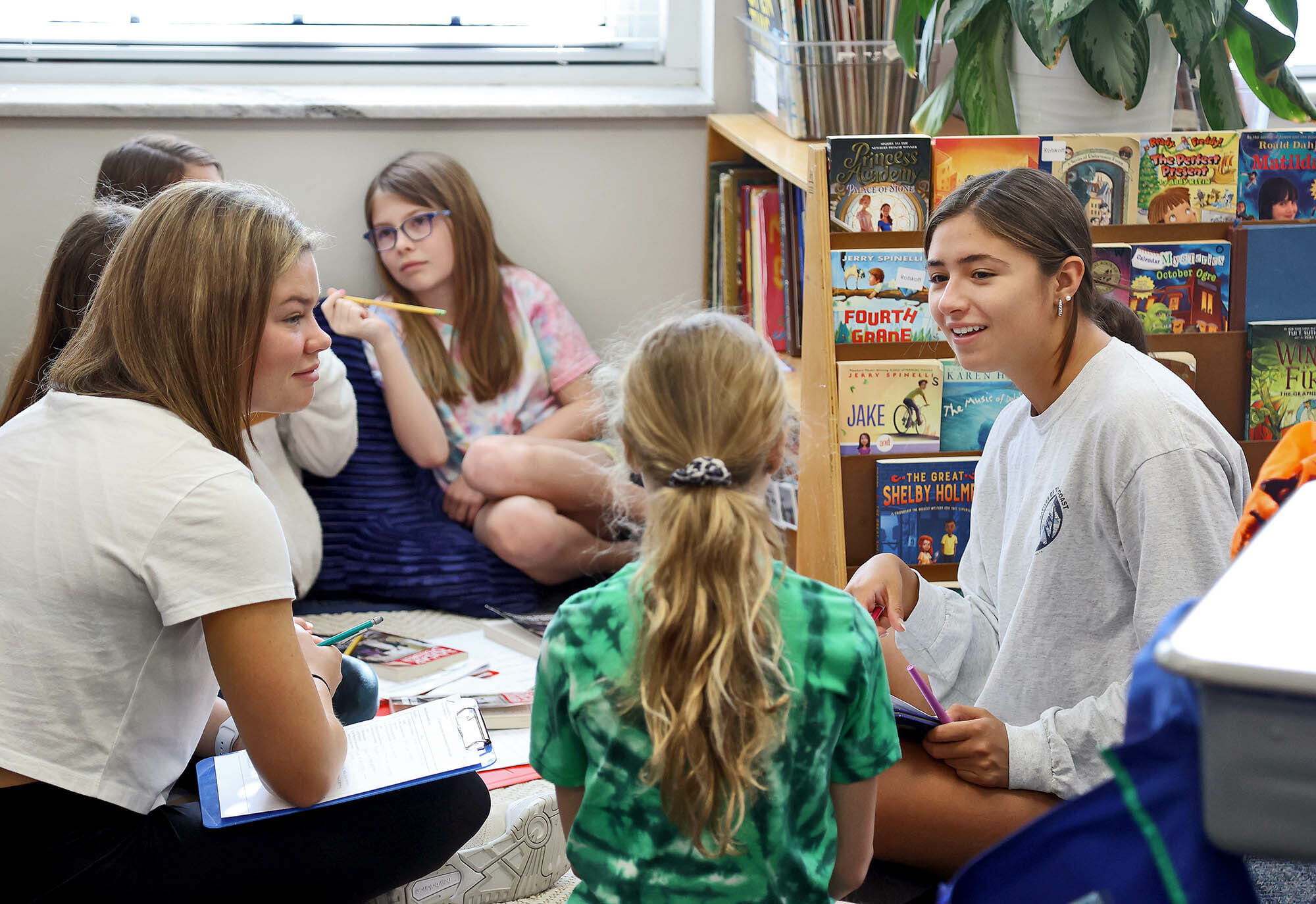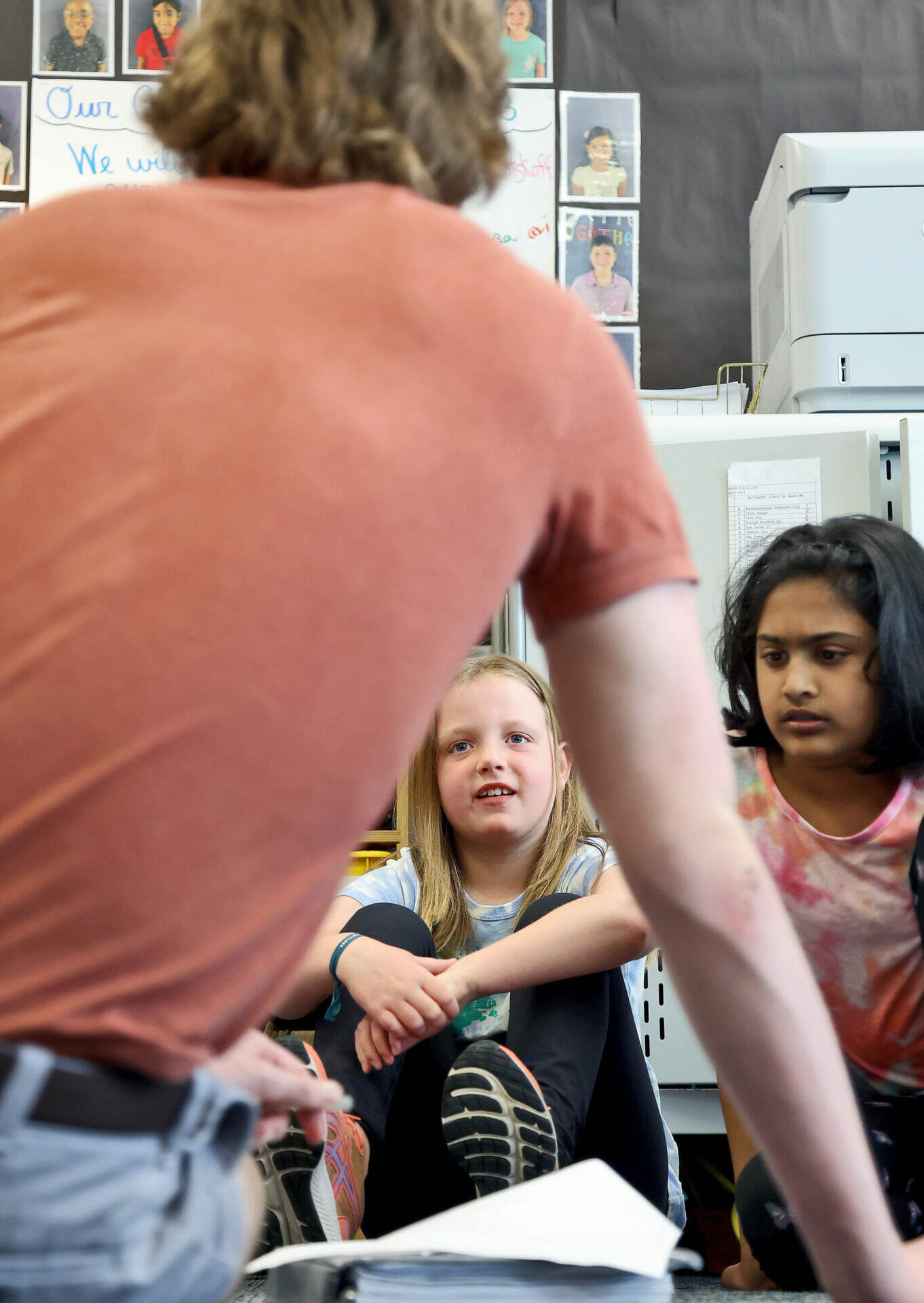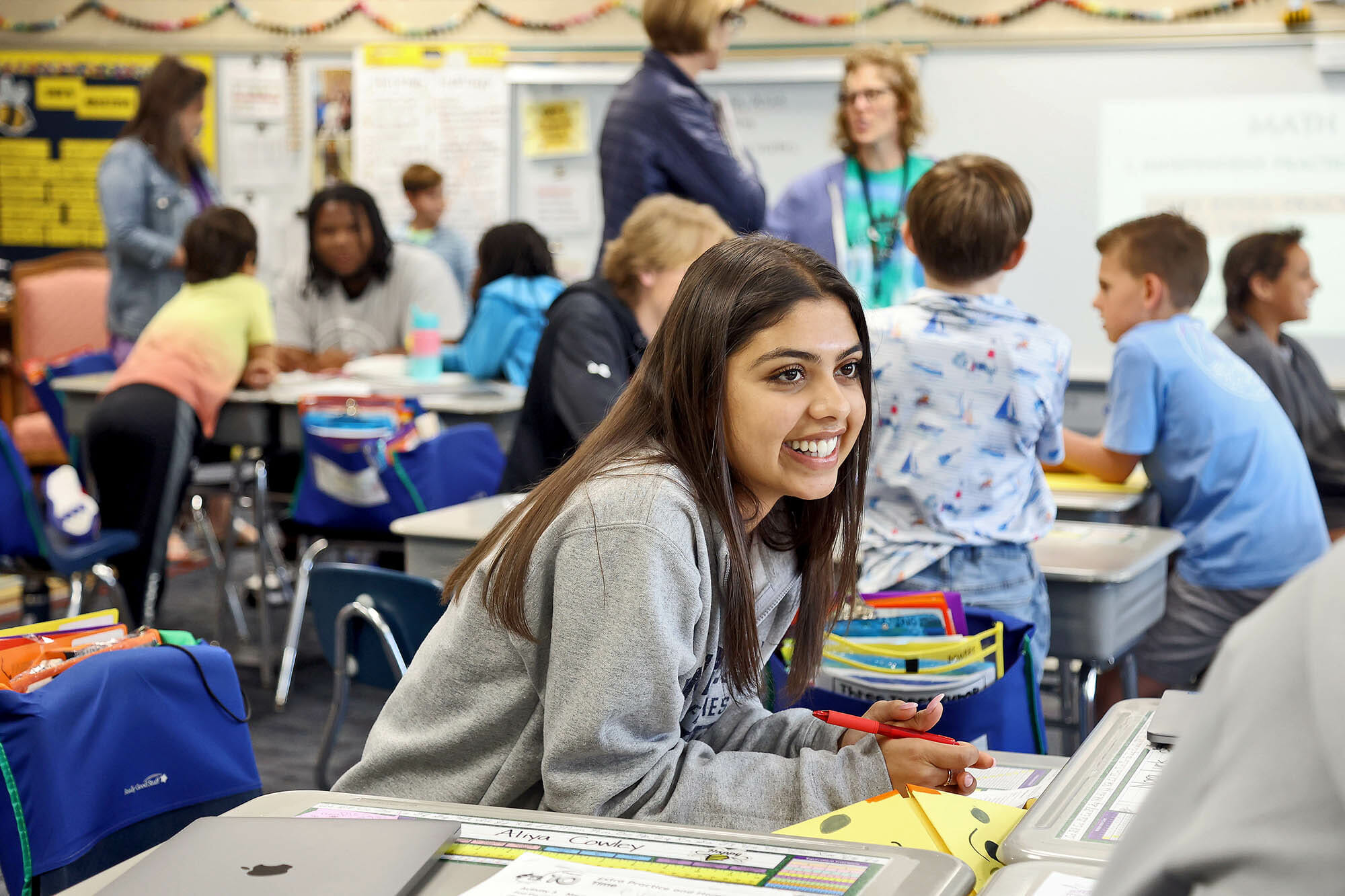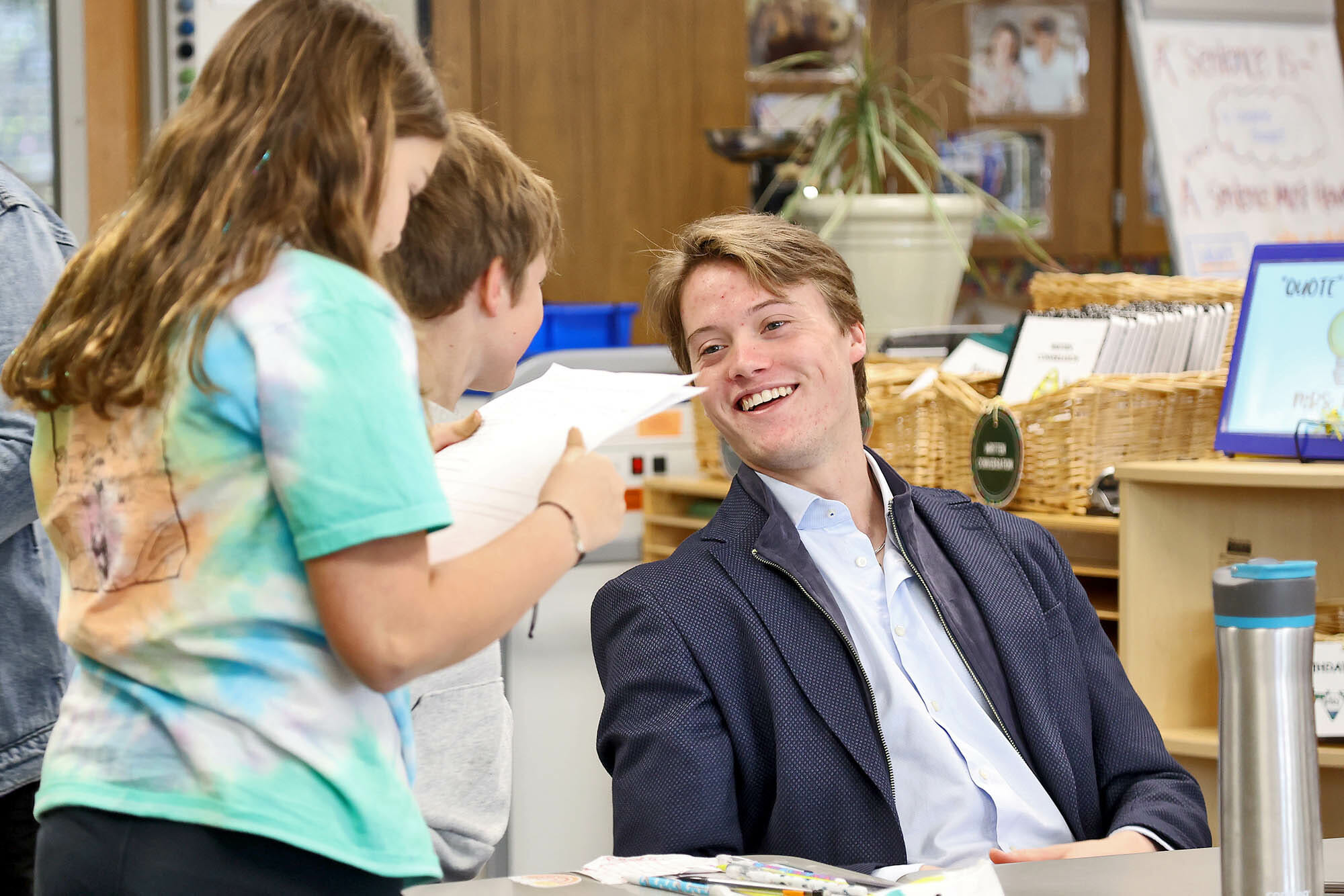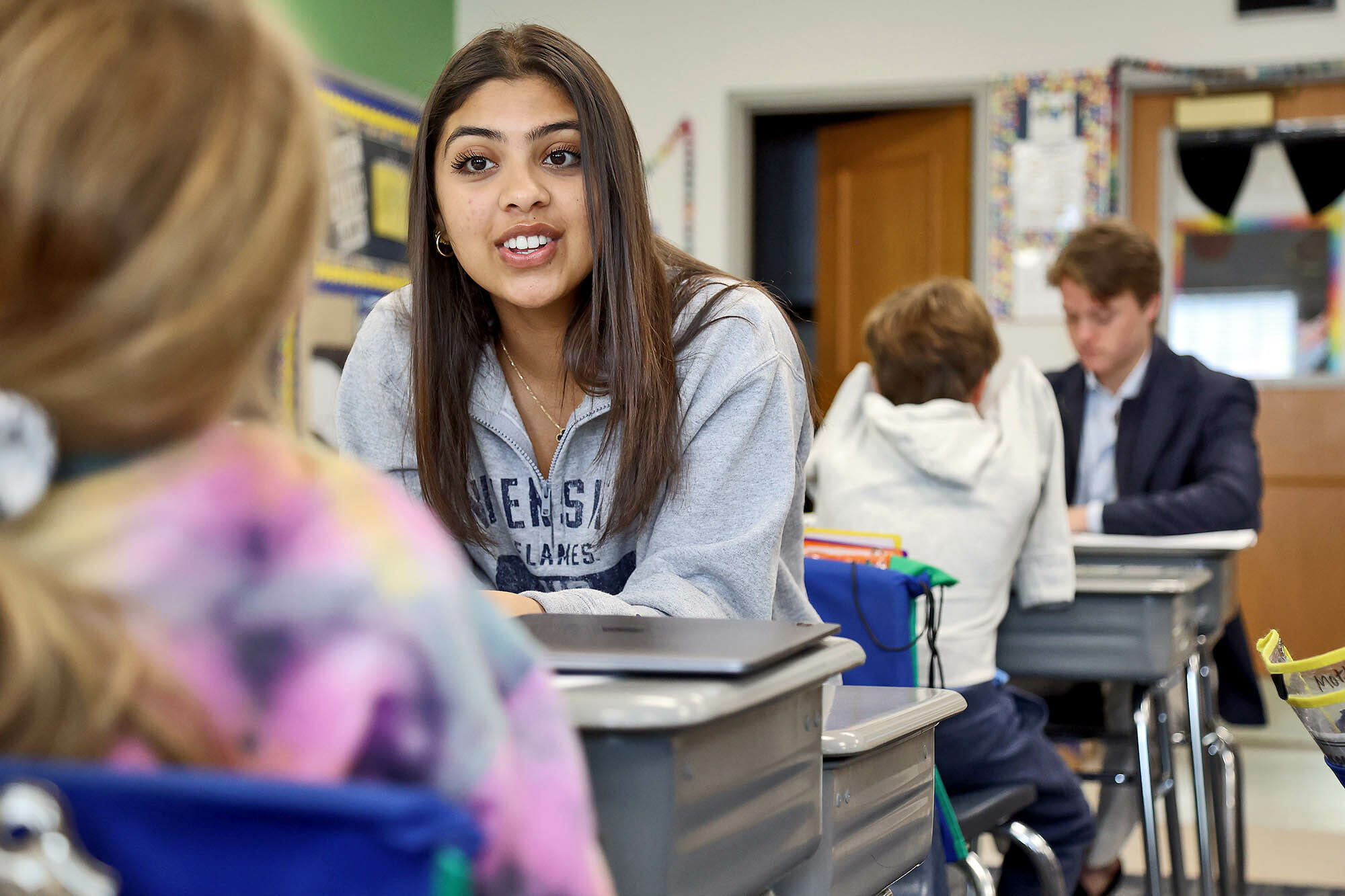Senior students in Upper School English Teacher Celeste Prince’s Advanced Literary Topics (ALT) class on Literature Exploration helped design a creative end to their semester. The class is designed to offer students one last “original English literature experience” before graduation and/or college. Under Prince’s guidance, students researched and chose a book to read together based on their shared interests. They collectively designed the direction of the course, including the final project. Each period is filled with debate, presentations, discussions, creating, and engagement. Prince said, “I want them to connect more personally with literature alongside their classmates, which prepares them for the intimacy of college humanities seminars and roundtables.” Whether her students study medicine or law, or anything beyond the English classroom, her students enjoy this opportunity to be in a humanities space that values English for its own sake, and to engage deeply with one particular work.
“Every class is its own community,” she said. ” It’s so much work to set up a unit so that students are in charge and to make sure they are in charge properly, but it’s worth it because at the end, they’re always so thrilled and so excited. Why can’t you be in charge of your learning? We have been in charge for the last four-plus years. They should leave feeling good about taking control of their learning.” As the term has gone on, Prince has loosened the reins and encouraged the students to design their own education.
To finish up their high school English experience, her students decided to tackle children’s literature. Prince admits she was skeptical about studying children’s literature at first. “I wondered if students were choosing children’s lit to get out of doing harder work, but based on what we have found, just by talking to librarians and looking in the library to see what’s available, challenged or not, they have learned that books are a great way to have deeper conversations.”
Her students quickly learned that while some children’s books are designed for amusement, many serve as valuable resources for students who may be struggling with grief and other heavy issues. Then, the seniors had to determine what their final project or assessment would look like. Working with Prince, they decided that each student would construct a lesson plan around a particular children’s book. What better way to do research than to visit the Lower School library on our campus?
There, seniors interviewed our librarians, Thomas Buffington and Nicole Liebman, to learn what appeals to students and how they learn about new materials, especially when a resource is needed to address a specific need. They took time to scour the stacks, each choosing a book on which to focus. They were excited to hunt for their old favorites, too, finding the books they loved when they were little.
“They came up with so many ideas, and it was really exciting,” said Prince. “The beautiful part of this whole process is it came together organically. We plotted out the calendar and included a celebratory read-aloud when the seniors asked, ‘Can we go talk to the kids?’ That’s when a plan to visit with Beasley students came together.” They constructed questions before the visit, preparing to make the most of their time with their younger schoolmates. Everyone enjoyed a vibrant discussion about books and stories in the library.
Prince noticed that the seniors were far enough away from their lower school days to be a little rusty when starting a discussion with small children but close enough to their childhood to let them take charge of the project. “The library visit made things click,” she said. “They learned that they have to find a way to teach the same book to different ages, including what they can water down for little students and how can they connect the book to bigger ideas for the big kids.”
They also learned about a special section of books in the back of the library, carefully curated to help children navigate divorce, the loss of a parent, and other thorny issues. “The Lower School librarians really jazzed them up,” said Prince. “They really learned the power of a story, the power of a book.”
The seniors peppered the librarians with insightful questions. “How do you reach the students when they don’t even know what to ask yet?” “What do you do when you determine the content of a book might be too much for Lower School students?” (Those books get referred to Middle School librarians for review.) They’re also addressing their own thorny questions, like, “How can you teach a controversial book, like To Kill a Mockingbird, from a different perspective?”
Anagayle Senn ’23 embraced the project. “My favorite part has been being able to connect and communicate with the kids while learning in a hands-on environment,” she said. “Getting our research directly from the kids themselves is preparing all of us with the necessary skills to craft an elaborate and effective lesson plan.
“Being 18 now and looking at some of the same children’s books, I am learning a lot about the influence they can have on children and their overall understanding of things that are happening in their life. For example, the book I am using, Missing Mommy, to teach in my lesson plan illustrates the ups and downs of navigating the loss of a parent or grandparent. It is extraordinary how influential these books can be in these kids’ lives while also communicating the message softly.”
Prince said, “It’s the last few weeks of their high school career and I want them to have a sticky, exciting experience that they chose.”
What a powerful way to end their high school literary careers, even as their Beasley friends are in the beginning stages of theirs!
